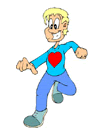Varicose veins can wreak havoc on a person’s self-image, especially when the warm weather arrives and shorts come out of the closet. Varicose veins can best be described as twisted and enlarged veins that stand out from the surface of the skin. They can be unsightly and embarrassing in some cases, but in others, varicose veins are actually a cause for health concern and can result in pain and discomfort.
 Anyone can get varicose veins and any vein can become varicose. However, the most commonly affected veins are those in the legs and feet. This is due to the increased pressure associated with a lifestyle that includes standing, walking and being upright. The veins of the body carry blood back to the heart after it has dropped off its oxygen. There are tiny valves in the veins that prevent “backflow” since veins have to work against gravity to get the blood from the legs back up to the heart. As we age, these valves sometimes malfunction or grow weaker, in addition to the fact that veins stretch and become more elastic with age. Over time, blood begins to pool in the lower extremity veins; resulting in bulging, large veins which look blue (this is because the blood is deoxygenated).
Anyone can get varicose veins and any vein can become varicose. However, the most commonly affected veins are those in the legs and feet. This is due to the increased pressure associated with a lifestyle that includes standing, walking and being upright. The veins of the body carry blood back to the heart after it has dropped off its oxygen. There are tiny valves in the veins that prevent “backflow” since veins have to work against gravity to get the blood from the legs back up to the heart. As we age, these valves sometimes malfunction or grow weaker, in addition to the fact that veins stretch and become more elastic with age. Over time, blood begins to pool in the lower extremity veins; resulting in bulging, large veins which look blue (this is because the blood is deoxygenated).
The most at risk group of individuals for varicose veins include pregnant women, overweight and obese individuals, people who stand for long periods of time (i.e. a job requires them to be on their feet all day), individuals with family members who also have varicose veins (genetics!), the elderly and finally women tend to get varicose veins more than men.
There are various methods to treat varicose veins, especially if they become a detrimental to a person’s health. There are non-invasive therapies as well as invasive, surgical procedures.
Exercise helps to prevent varicose veins from developing in the first place and also helps to keep the current ones from becoming worse. Weight loss will also be beneficial for the overweight/obese individual. If a person is required to stand for long intervals, it is best to take sitting breaks and to elevate the legs when possible to help the blood return to the heart. Wear loose fitting clothes; avoid clothing which restricts the blood flow.
For extremely stubborn or potentially dangerous varicose veins there are other options. They include sclerotherapy which seals off the varicose veins. The body reroutes the blood to healthier and stronger veins and within a short period of time the varicose veins will go away. Smaller varicose veins and those found in the head and neck region can be treated with laser surgery. In theory, the outcome is the same as sclerotherapy; laser surgery closes off the varicose veins causing them to eventually disappear. However, in laser surgery a light beam is used whereas in sclerotherapy a solution is injected into the veins.
Several other procedures are also used such as catheter-assisted procedures (a heated catheter tip is used to shut off the vein) and also vein stripping. In this case the vein is actually removed and other veins, deeper in the leg, take on the volume of blood of the removed vein.
To prevent the formation of varicose veins it is important to remember the value of staying fit, exercising and remaining at a healthy body mass index and a healthy weight. Additionally, keep leg-crossing to a minimum as this may restrict the flow of blood, and try to avoid tight clothing.
However, remember, varicose veins are a normal part of aging and may occur regardless of the prevention measures taken.
I had no idea that pregnancy could cause varicose veins! I’m about 7 months along, and I have quite a few varicose veins. It makes sense, I am putting a lot more weight and pressure on my legs. In the future, I’ll be sure to exercise more, so that I can prevent them. That seems like a pretty simple thing that you can do to help prevent them.
I think it’s good to know that there are options available for treating varicose veins. My wife has been developing varicose veins for a while, and like stated in the article, they have been pretty destructive on her self-image. Would consulting with a vascular surgeon be the best way for her to understand what treatments would be right for her?